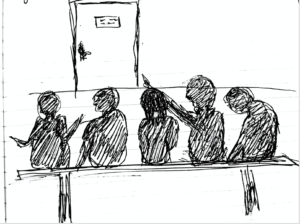The Challenges Undisclosed
reflecting on the invisible experiences of doctoral fieldwork
This special issue of Field Diary, guest edited by Liz Storer and Anna Shoemaker, is the second online publication in the Field Diary series produced by the REAL project.
The mere invocation of ‘the field’ conjures up representations of adventure, understanding, challenges, deep connection and loneliness. Alongside these ideas of discovery, the field seems inextricably linked to quasi-scientific notions of precision. We often discuss the field as though it is clearly located and defined; it can be easily entered, and easily left. For some doctoral students, it is the allure of novel findings that drive their decision to embark upon PhD research in a foreign locale. Or perhaps fieldwork does not require travelling to a distant place, but is a way of understanding ones own home using new epistemic and methodological approaches. For other unfortunate PhDs, fieldwork is a necessary evil. In any case, field experiences often prove formative and enable students to contribute towards the academic disciplines which they seek to enrich.
The issue presents a breadth of reflections on doctoral fieldwork experiences in order to generate insight and discussion on how we might better understand our interactions with ‘the field’. Topics addressed in this special issue are diverse, but all entries openly confront the potential for fieldwork to position researchers as both powerful and vulnerable.
Download Field Diary Issue 2
If you would like to submit an entry, propose a theme, or serve as an editor for the next issue of Field Diary, please write to fielddiaryeditors@gmail.com.
Download the Student-Supervisor Alignment Template.
